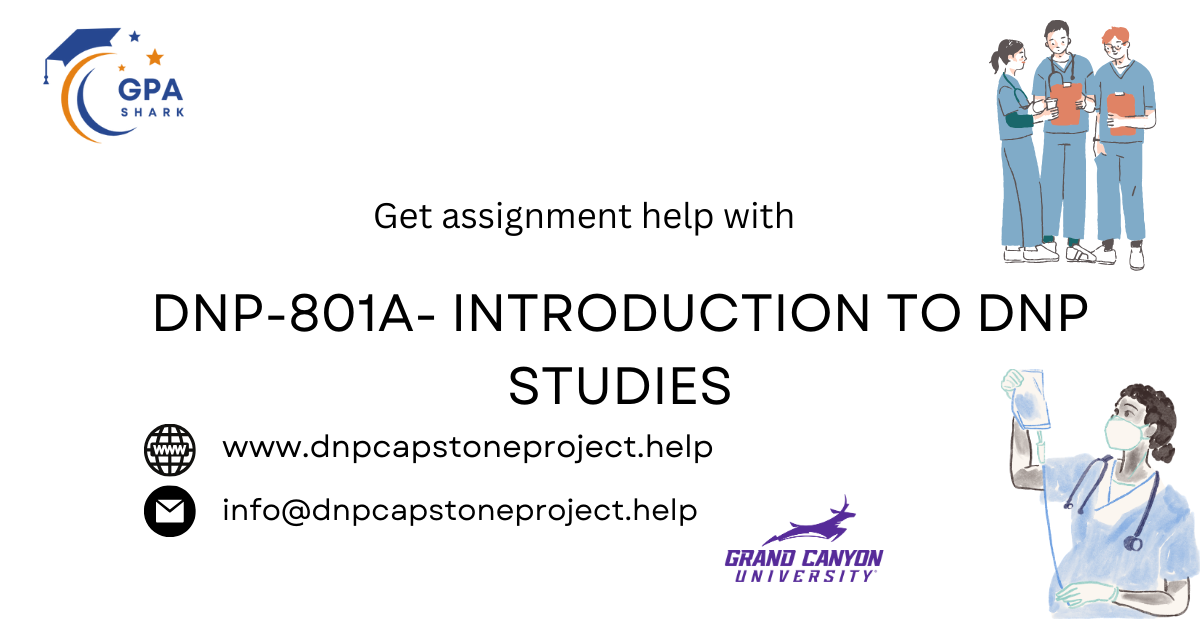In today’s rapidly evolving healthcare landscape, the application of evidence-based practice (EBP) is essential for achieving quality improvement and enhancing patient outcomes. DNP810- Evidence-based Practice for Quality Improvement is designed to equip nurse scientists with the knowledge and skills necessary to leverage diverse EBP resources effectively. This course builds on foundational principles of translational research, emphasizing the generation and synthesis of evidence from nursing science into practical applications. Through a comprehensive curriculum, students will explore quality improvement initiatives, safety science principles, and national quality and safety initiatives, preparing them to lead improvements in both individual and systems-based healthcare settings.
Table of Contents
DNP810- Evidence-based Practice for Quality Improvement Course Overview
The DNP860 course focuses on the integration of EBP into quality improvement initiatives. It encompasses the following key components:
1. Utilization of Evidence-Based Practice Resources
Students will learn to identify and utilize a wide range of EBP resources, including clinical guidelines, systematic reviews, and research studies. Emphasis will be placed on the critical appraisal of evidence to ensure its validity, reliability, and applicability to clinical practice.
2. Principles of the Research Process
Understanding the research process is fundamental for nurse scientists. This course covers the basic principles of research design, data collection, and data analysis. Students will gain the skills needed to evaluate and critique research studies, enabling them to determine the quality and relevance of the evidence for their practice.
3. Translational Research
Translational research involves converting scientific discoveries into practical applications that improve patient care. The course will delve into the concepts of translational research, highlighting how evidence generated from nursing science can be synthesized and applied to clinical practice.
4. Quality Improvement Initiatives
Quality improvement (QI) is a systematic approach to enhancing healthcare processes and outcomes. Students will explore various QI models and methodologies, such as Plan-Do-Study-Act (PDSA) cycles and Six Sigma. The course will provide opportunities for students to apply these QI initiatives to real-world healthcare scenarios.
5. Safety Science Principles
Ensuring patient safety is a critical aspect of healthcare. The course will cover established and emerging principles of safety science, teaching students how to identify and mitigate risks in healthcare settings. Students will learn to implement safety protocols and measure the impact of safety initiatives on patient outcomes.
6. National Quality and Safety Initiatives
Students will explore national quality and safety initiatives, such as those promoted by the Agency for Healthcare Research and Quality (AHRQ) and the Institute for Healthcare Improvement (IHI). The course will examine how proven research is utilized within individual and systems-based settings to drive improvements in healthcare quality and safety.
DNP810- Evidence-based Practice for Quality Improvement Course Objectives
By the end of the DNP860 course, students will be able to:
- Identify and Utilize EBP Resources: Demonstrate the ability to locate, appraise, and apply diverse EBP resources to clinical practice.
- Understand and Apply Research Principles: Exhibit a comprehensive understanding of the research process, including design, methodology, and data analysis.
- Translate Research into Practice: Synthesize evidence from nursing science and apply it to improve patient care and healthcare processes.
- Implement Quality Improvement Initiatives: Develop and execute QI initiatives using established models and methodologies.
- Apply Safety Science Principles: Identify safety risks and implement strategies to enhance patient safety in healthcare settings.
- Explore National Quality and Safety Initiatives: Understand and apply national initiatives to promote quality and safety within healthcare organizations.
DNP810- Evidence-based Practice for Quality Improvement Course Assignments and Activities
Literature Review (Chapter 2 of the Manuscript)
One of the significant assignments in this course is the development of Chapter 2 of the DNP manuscript, which involves creating a comprehensive literature review. Students will document 125 immersion hours associated with the DNP Project, focusing on the synthesis and critical appraisal of evidence relevant to their specific clinical question or area of practice.
Immersion Hours
The course requires students to document 125 immersion hours. These hours will be dedicated to applying course concepts in real-world settings, engaging in activities such as data collection, analysis, and implementation of QI initiatives.
How to Approach the DNP810- Evidence-based Practice for Quality Improvement Course Step-by-Step Guide
- Engage with Course Materials: Start by thoroughly reading the learning materials provided in each module. This will include textbooks, research articles, and clinical guidelines.
- Participate in Discussions: Actively engage in online discussions with peers and instructors. Sharing insights and experiences can enhance your understanding of course concepts.
- Conduct a Literature Review: Begin working on Chapter 2 of your manuscript by conducting a comprehensive literature review. Use databases such as PubMed, CINAHL, and Cochrane Library to find relevant studies and clinical guidelines.
- Apply Research Principles: Use the principles of research design and methodology to critically appraise the evidence you gather. Ensure that your sources are credible and applicable to your clinical question.
- Implement QI Initiatives: Apply QI models, such as PDSA cycles, to develop and implement quality improvement initiatives in your practice setting. Document your process and outcomes.
- Focus on Safety: Identify potential safety risks in your practice environment and implement strategies to mitigate these risks. Measure the impact of your safety initiatives on patient outcomes.
- Document Immersion Hours: Keep detailed records of your immersion hours, including the activities you engage in and the outcomes you achieve.
Also Read:
- Aspen University DNP Capstone Project Help
- DNP800 Theoretical and Scientific Underpinnings
- DNP805 Organizational and Systems Leadership
- DNP835 Strategic Leadership and Business Management
- DNP840 Strategic Planning and Financial Management
- DNP825 Health Information Management and Informatics
- DNP810 Evidence-based Practice for Quality Improvement
- DNP820 Health Policy and Advocacy
- DNP830 Global Population Health
- DNP850A Project Planning
- DNP850B Project Proposal
- DNP851A Project Implementation
- DNP851B Project Data Analysis
- DNP852A Project Manuscript
- DNP852B Project Dissemination

